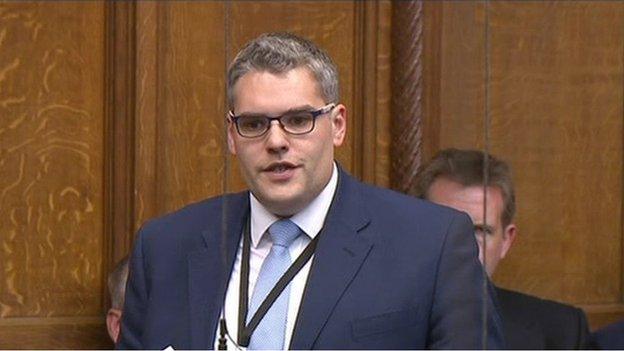'No revolt within DUP,' says Foster
- Published
- comments
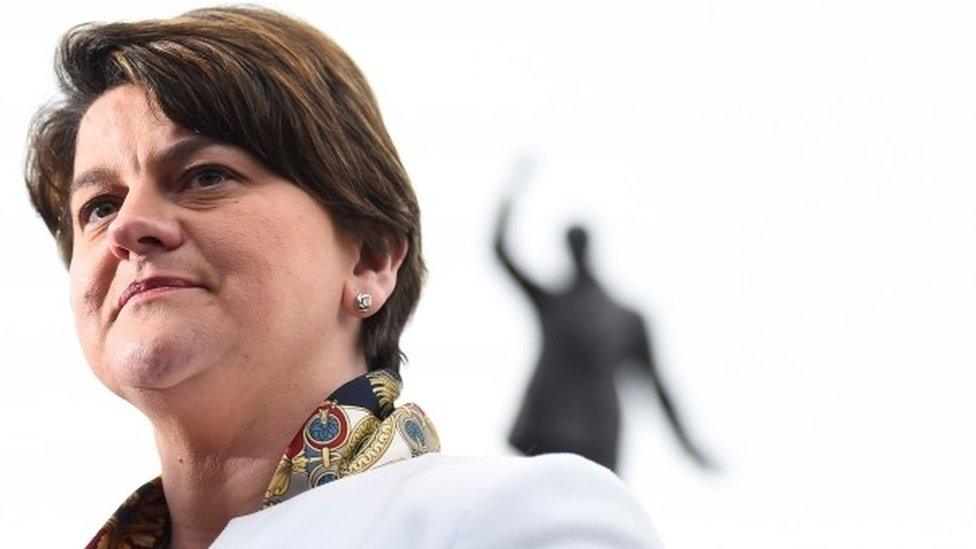
There is "no revolt" within the DUP after its losses in the assembly election, says its embattled leader Arlene Foster.
The election ended the unionist majority at Stormont, with Sinn Féin now just one seat behind the DUP.
But Mrs Foster said her party had won the election, increasing its vote in every constituency, which was a "pretty good basis to continue as leader".
A DUP delegation met Sinn Féin later on Monday, with more talks due on Tuesday.
Mrs Foster denied reports that a third of her party's newly returned members of the legislative assembly wanted her to step down., external
'No problem'
"There's no revolt," she said. "I've had a very good meeting today with my party officers, I'll meet with my full assembly team tomorrow morning and talk to a lot of my other colleagues as well."
"So there's no problem, no problem at all."
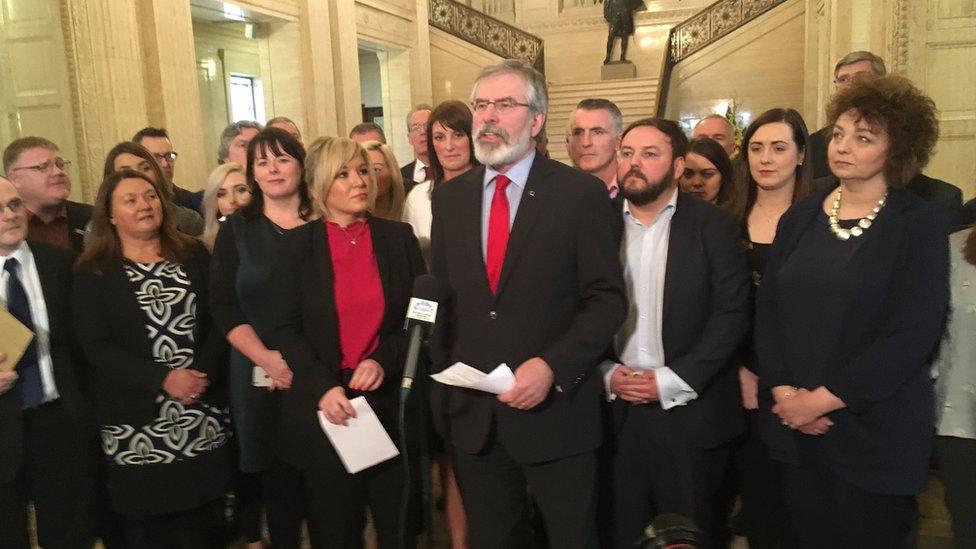
Speaking at a press conference at Stormont Gerry Adams said the government's approach illustrates it is "part of the problem"
Having held what she called a "good discussion" with Secretary of State James Brokenshire earlier on Monday, Mrs Foster said she wanted to see devolution restored.
"From our perspective it's doable," she added.
Mr Brokenshire has been meeting Stormont party leaders to try to persuade them to form a new power-sharing executive.
The parties have just three weeks to overcome their differences.
Earlier, Sinn Féin President Gerry Adams criticised the UK government, saying it was "going to make all the mistakes that it has made in the past" in Northern Ireland.
"The British government's general approach illustrates perfectly that they are part of the problem and without a fundamental change on their part there can't be the type of progress people want to see here," said Mr Adams.
'Reassuring unionists'
SDLP leader Colum Eastwood said while the party would negotiate with anybody, Arlene Foster could not be nominated as first minister whilst the "cloud of scandal continues".
But Mr Eastwood had words of reassurance for unionists, saying: "We're not out to destroy your culture or identity, we're out to work with you."
Stephen Farry of the Alliance Party said that while Mr Brokenshire had a major role to play in the way forward, he had to take more care to be impartial.
"At times the UK government have been, and indeed the Conservative Party, too close to the perspective of the DUP rather than actually acting as an impartial broker between the parties," he said.
Mr Brokenshire said the primary responsibility lay with the Democratic Unionist Party (DUP) and Sinn Féin to use the "limited window" now open.
Both parties say they want to see power-sharing restored, reports BBC News NI Political Editor Mark Devenport.
But Sinn Féin is objecting to Arlene Foster returning as first minister while an inquiry into the Renewable Heat Incentive scandal remains under way, adds our editor and, so far, there's no sign of how this immediate problem might be resolved.
BBC News NI looks at the next steps for the Stormont Assembly
Mrs Foster set up the botched energy scheme, which could cost the Northern Ireland tax payer £490m.
Her refusal to stand aside during the inquiry was the catalyst for Martin McGuinness' resignation as deputy first minister in January, triggering the collapse of the DUP and Sinn Féin-led coalition government and forcing last week's snap election.
DUP MP Nigel Dodds told BBC Radio Ulster earlier that although Mrs Foster had been through a "very difficult time", her position as leader of the party was "entirely secure".
But Sinn Féin's Conor Murphy earlier repeated the party's red line that the DUP leader could not be reinstated as first minister while an inquiry continues.
This was essential to restore public confidence in the institutions, he added.
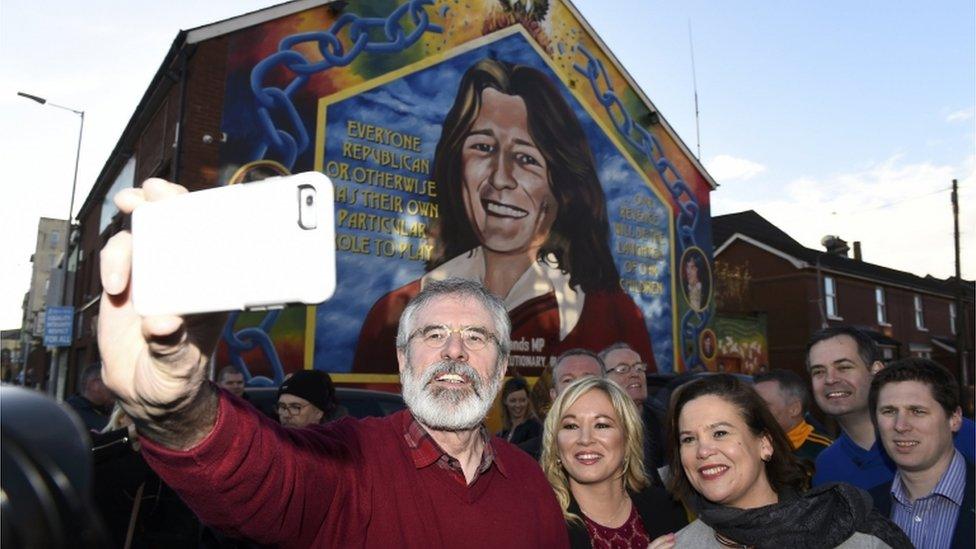
Sinn Féin saw a surge in support in Thursday's election
Mr Murphy added his voice to concerns about Mr Brokenshire's neutrality, describing him as "the central blockage in relation to resolving the legacy issue".
Direct rule
New and returning Assembly members will be moving into their offices later, and talks are scheduled to get under way elsewhere at Stormont to determine how long the new Assembly term lasts.
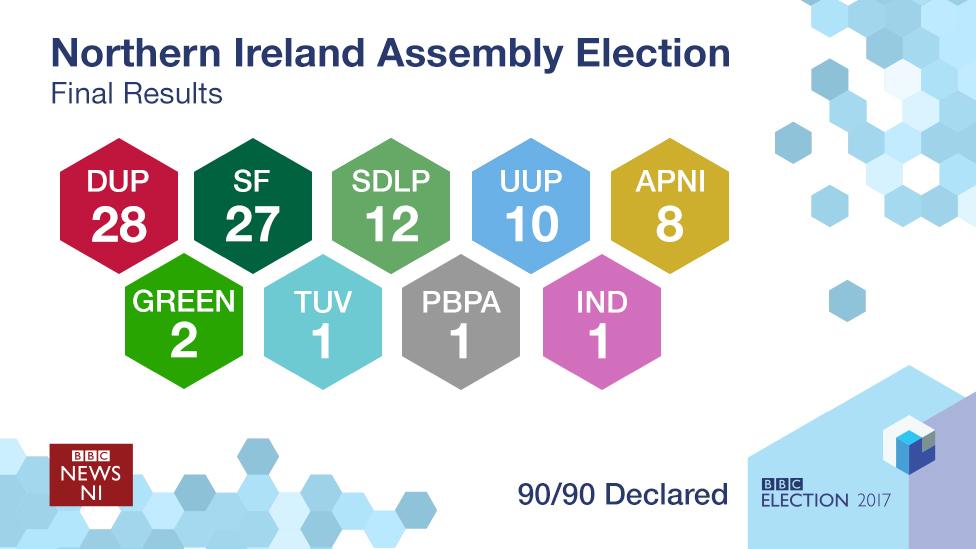
The DUP went into the election 10-seats ahead of Sinn Féin and, while it remains the largest party with 28 seats, its lead has been cut to just one seat.
Under Northern Ireland's power-sharing agreement, the government must be run by Irish nationalists and unionists together, with the largest party being invited to put forward a candidate for first minister.
Sinn Féin and the DUP now have three weeks to reach a deal and if a government cannot be formed within that time then, under law, another election can be called.
Ultimately, if no power-sharing government is formed, power could return to the UK Parliament at Westminster for the first time in a decade.
- Published5 March 2017
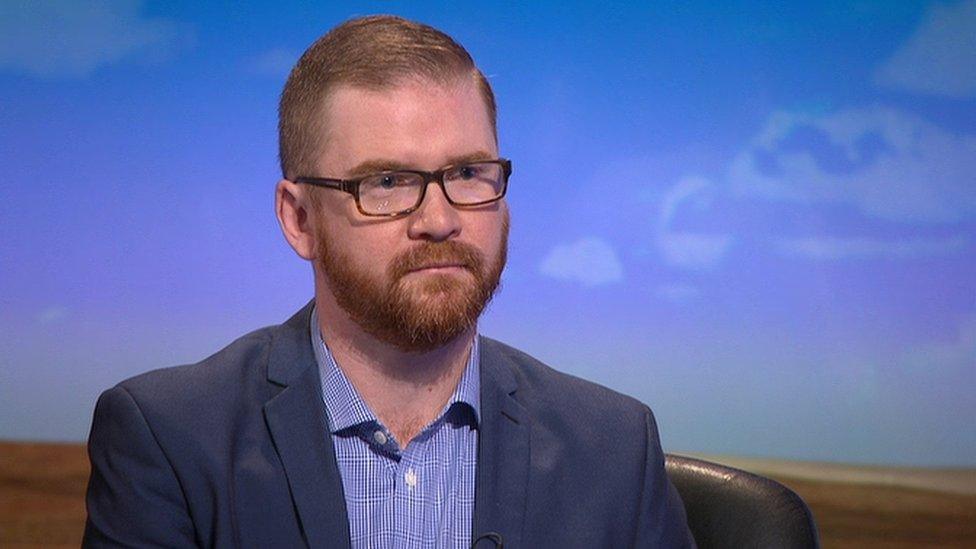
- Published5 March 2017
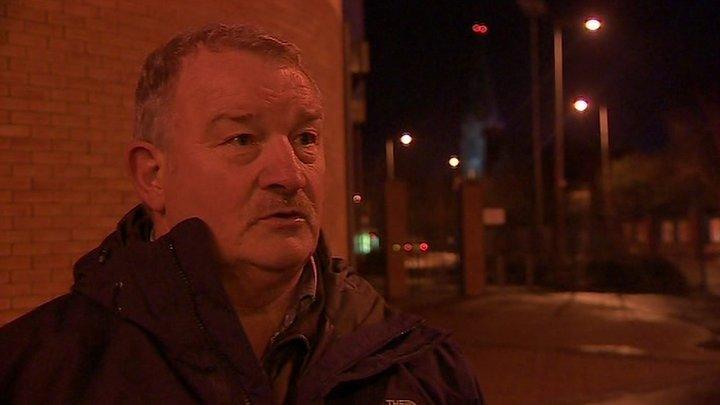
- Published4 March 2017
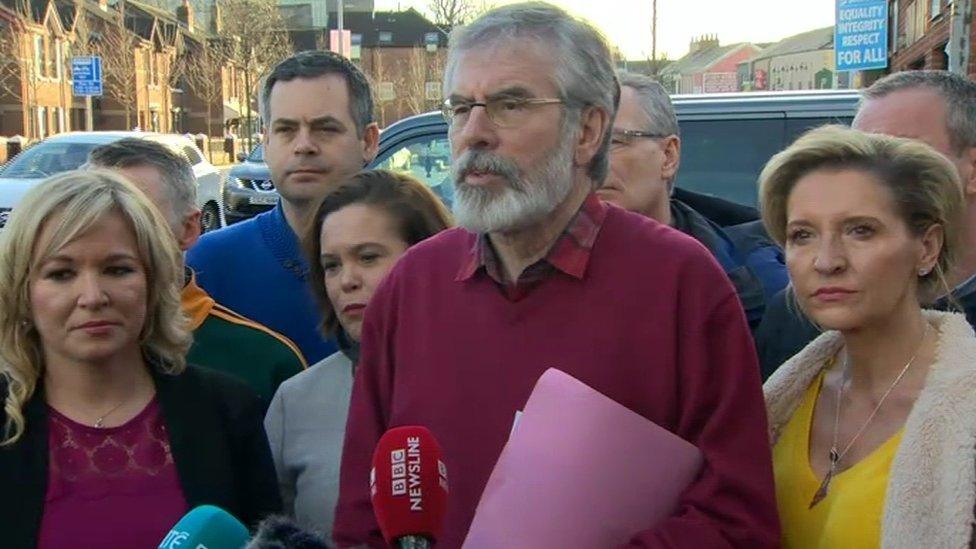
- Published4 March 2017
